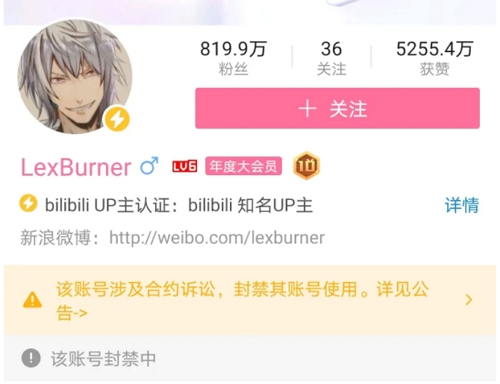 Bilibili logo
Bilibili logo
Every night before going to bed, I spend some time relaxing. Breaking news, trendy headlines and well-articulated essays are good for the morning, but too intensive at night. Often I click apps that provide lighter content.
Among all online platforms, my favorite is Bilibili. On Bilibili, you can access unlimited user-generated content covering a wide range of topics. My favorites are fan-made mash ups of celebrities’ dance clips, reaction videos to trendy cultural phenomena, and aesthetically pleasing vlogs.
 Sixth Tone; “videos you’re interested in, all on Bilibili.” an ad on display at a subway station wrote
Sixth Tone; “videos you’re interested in, all on Bilibili.” an ad on display at a subway station wrote
Initially, Bilibili was a platform dominated by anime and gaming videos. Over time, Bilibili has become one of the most popular online platforms for Chinese Gen Z.
Nowadays, Bilibili is called the Chinese YouTube with over 170 million monthly active users. It is currently listed on the Nasdaq with a $50 billion market value.
 Bloomberg; Bilibili’s initial public offering at the Nasdaq Market Site in New York, March 28, 2018
Bloomberg; Bilibili’s initial public offering at the Nasdaq Market Site in New York, March 28, 2018
However as the platform has diversified and entered the mainstream, clashes among users frequently arise. Controversy over the anime “Mushoku Tensei: Jobless Reincarnation” exemplifies such conflicts.
What Exactly Happened?
In early January, a Japanese anime named “Mushoku Tensei: Jobless Reincarnation” was purchased by Bilibili and translated into Chinese. The anime quickly became the most popular show on the entire platform.
Meanwhile, many users, predominantly women, fiercely criticized the anime for its portrayal of sexual harassment, insults to women, and pedophilia.
 Pinterest; poster of “Mushoku Tensei: Jobless Reincarnation”
Pinterest; poster of “Mushoku Tensei: Jobless Reincarnation”
On the other hand, fans of the anime insisted that those critics were exaggerating. Many fans felt personally offended that they were being criticized for merely watching an anime.
Moreover, they worried that the cancel campaign would further marginalize anime subculture. Some even labeled the criticism as an attempt to demolish the freedom of creation on Bilibili.
On February 7, a famous influencer on Bilibili with the screen name LexBurner publicly denounced “Mushoku Tensei” on his channel. The denouncement irritated the fans of the anime, leading to intense arguments.
The same day, Bilibili removed the anime from its platform. Meanwhile, it also suspended the account of LexBurner on the grounds of community rule violation.
 Profile page of LexBurner, showing its account was suspended
Profile page of LexBurner, showing its account was suspended
How Did People Respond?
This immediately triggered huge backlash on Weibo. People regarded LexBurner’s suspension as an unjust act. Due to public pressure, multiple brands terminated their partnerships with Bilibili. Trendy topics like “boycott brands which promote on Bilibili” received millions of views within a day.
On February 10, Bilibili issued a statement apologizing for their misconduct.
Bilibili stated that “respect is the cornerstone of Bilibili community… and Bilibili shows enormous respect to users, creators, people of different genders and interests, as well as diverse cultural groups.”
In light of the latest controversy, Bilibili announced that it would update the community rules and regulation policies to better address users’ concerns.

How Should Bilibili Address These Issues?
The controversy resonates with the long standing discontent with Bilibili by woman netizens. Throughout the years, many have condemned Bilibili for tolerating trollers who dehumanize and humiliate women while suppressing feminist voices.
Critics believe that Bilibili has become the beacon of misogyny, patriarchy, pedophilia and discrimination against women in the Chinese online sphere.
From a broader perspective, the “war” between Bilibili and women users manifests the feminist resistence against gender inequality in Chinese society. The eventual concession of Bilibili shows that young women exert great leverage in the contemporary Chinese cultural and economic space.
However, the deep problems embedded in the controversy are left unaddressed. Bilibili should move beyond taking down one “problematic” anime. It must conduct a systematic overview of the gender discriminatory and sexually inappropriate content on the platform.
Most importantly, the platform needs to negotiate with its diverse user groups on new community rules. They must balance the rights of women and the freedom of creation, and open effective public discussions.
 Sixth Tone; 2018 BilibiliWorld exhibition
Sixth Tone; 2018 BilibiliWorld exhibition
The Future of Bilibili
Like most users, I intend to continue to use Bilibili. Bilibili has its unique strengths compared to its competitors such as TikTok (aka Douyin).
The videos on Bilibili are not restricted to a few seconds in length. They can be viewed in either portrait or landscape mode. Creators can even incorporate interactive features like quizzes.
Most importantly, Bilibili has a remarkable feature called the “bullet screen comments,” allowing users to trade quips in real time while watching. The bullet screen comments bring about enormous creativity to the existing content.
 TechNode; bullet screen comments
TechNode; bullet screen comments
The quality content, interesting creators and groundbreaking features are the reasons why Bilibili attracted me in the first place. They still do. I sincerely believe that Bilibili has limitless potential if it ican solve its existing problems.
Bilibili still has a long way to go, and I’m hopeful for its future. But don’t get me wrong — without the courage to curb the hazards, it isn’t going anywhere.
What are your thoughts on Bilibili and the latest controversy? Tell us in the comment section below!
[zombify_post]


0 Comments